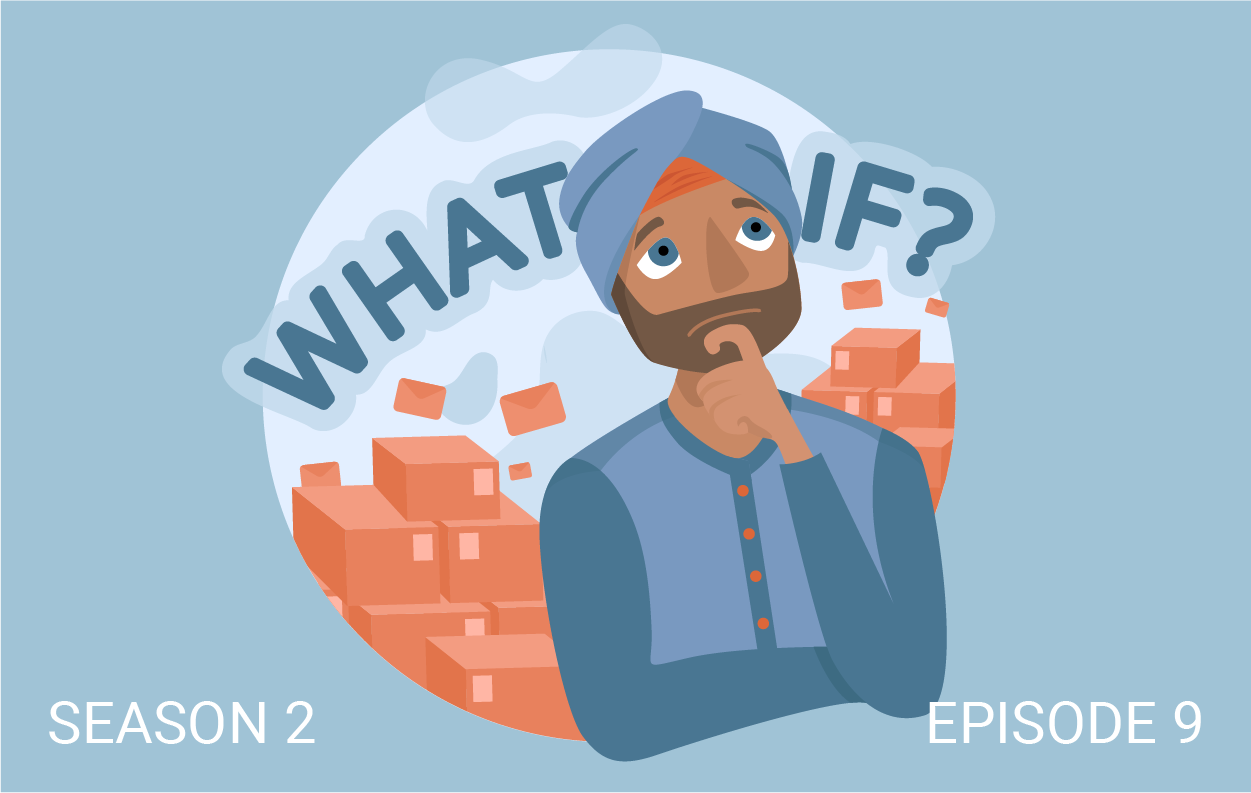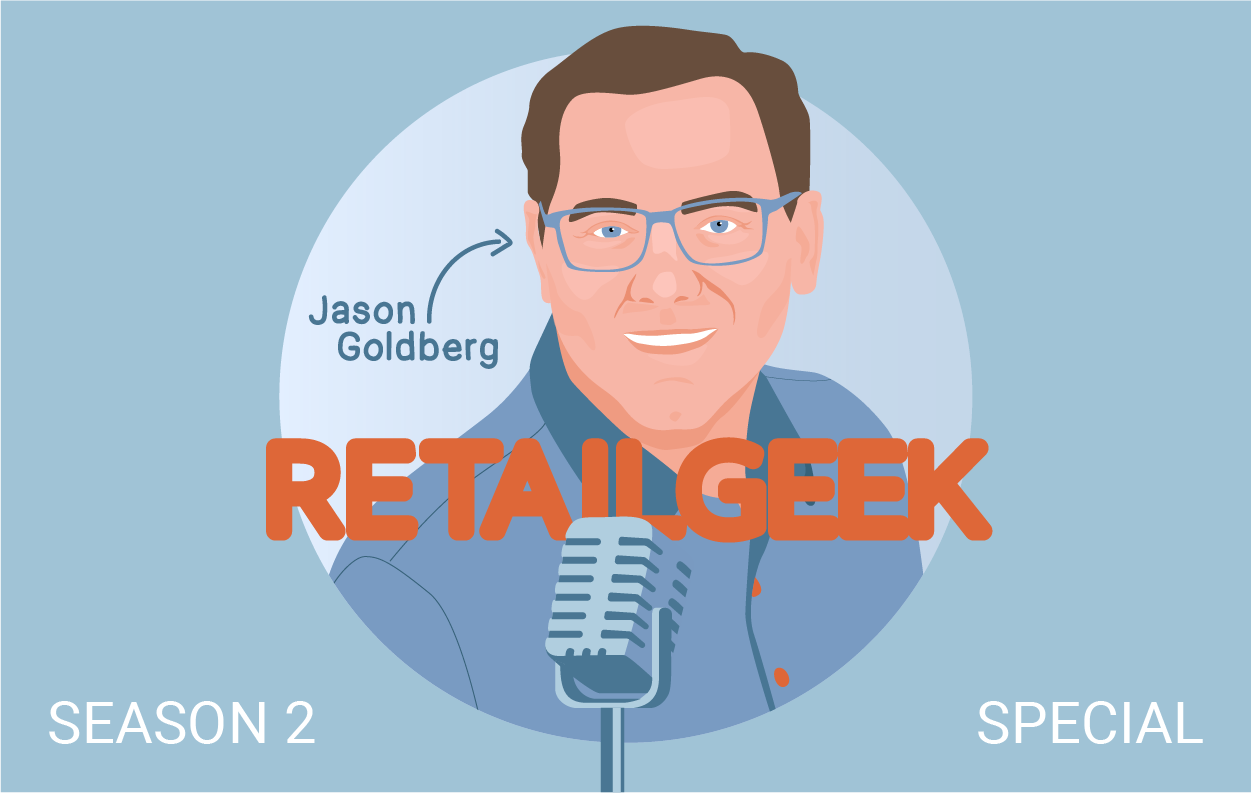
You're not alone
The entrepreneurs discuss struggles with mental health
MAKING IT WORK PODCAST
Season 2 | Episode 8
The pressures of entrepreneurship can sometimes be too much to handle. No wonder then that small business owners often suffer with depression and anxiety. But are struggles with mental health an inevitability when you own a company? It's time to talk.
From daily anxiety attacks to contemplating suicide, four small business owners speak candidly about their depreciating mental health – and the steps they've taken to manage it.
So does the macho myth of entrepreneurship contribute to these feelings of hopelessness? Or do small business owners suffer the same as everybody else?
Listen now
SHOW NOTES
Entrepreneurship, and the importance of mental health
Starting and running your business is often painted as a titanic, heroic struggle. And as well as the logistical and financial battles that entrepreneurs fight on a daily basis, factors such as stress and anxiety are casually accepted as par for the course.
Perhaps too casually. Not everyone has boundless amounts of mental resilience and for the founder or owner of a business, those struggles can be painful and damaging – even, literally, lethal.
Punishment for success
“I feel like that's my area of expertise now,” says Mayra Hernandez, founder of Back of the Yards Coffee Co. “When I became an entrepreneur, I thought that the reason I was having anxiety attacks and depression was because of the business. But after much therapy and reflection and soul searching, I realized that I've been carrying a lot of trauma from past experiences, and that the stress from running a business just exacerbated everything.”
Mayra’s point is important. Having a clean bill of mental health is an increasingly unusual state of affairs in today’s accelerating world, and starting up your own business can easily be just the thing that lifts the lid on any buried traumas. PTSD isn’t just a military term.
And once that lid’s off, it’s hard to put it back on again, as SWISCO CEO Paul Pallas has discovered. “It can be very scary when you wake up in the middle of the night, thinking about some potentially major issues that could affect your business. And you'll lay in bed, just going over the same details over and over again, when you really just need to go back to sleep and you'll feel better in the morning. It's something I absolutely struggle with.”
Dahlia Rizk, the founder of Buckle Me Baby Coats agrees. “I think that entrepreneurship is a beautiful journey, but it does have a risk of depression associated with it.” However, she doesn’t necessarily think that the classic work-life balance conundrum is the root cause. “I think it has more to do with hope and expectations, and hopelessness and self-care. Are you checking in with yourself and making sure that you're enjoying what you love? Are you optimistic about what's happening? Are you finding yourself starting to slip into patterns of thinking that are very negative?”
Winners never quit (except sometimes they should)
It’s an interesting viewpoint, and one that challenges the conventional wisdom that you have to work until you drop, channeling every last drop of your energy into your business. Because make no mistake, dropping is exactly what you’ll do.
“I kept avoiding addressing my anxiety and avoiding accepting that I had depression… until I had a breakdown.”
“For me,” says Mayra, “I kept avoiding addressing my anxiety and avoiding accepting that I had depression by overworking myself until I had a breakdown. I just kept thinking, ‘I have to keep working. I have to keep working’ – people had no idea that this was happening to me.” She’d find herself having anxiety attacks in the washroom before meeting reporters or doing interviews and then wiping off the tears, and trying to look as normal as possible.
Dahlia feels that this harmful rhetoric around entrepreneurship, this keep-going-at-any-cost mindset backs people into a corner. “I think that you do need to push and you do need to hang on to what you believe is going to work. But I think that you need to also build a line in the sand that belongs to you, doesn't belong to somebody else.”
She also feels that it’s important to filter out the negative opinions that are inevitable at the start of a business – but carefully. “People all over the place, they're going to tell you that you can't do what you want to do, or you can't do exactly what you're already doing, it's not going to work. And you have to learn to not listen to that. But sometimes in not listening to that, people lose sight of their own noes and they lose sight of noticing what their boundaries are with their product.”
Spotting the red flags
That’s a reminder that it’s vital to put checks and measures in place to ensure that those boundaries aren’t breached: one of the big problems with any mental health issue is the difficulties in self-diagnosis. But what are the red flags to watch for?
“I think they're the same as the red flags for any depressive symptoms,” says Dahlia. “Are you having a hard time getting up in the morning? Are you finding it difficult to find joy or happiness in the small details of your life?” Everybody has good days and bad days, of course, “ …but if you're finding that your bad days are starting to outweigh your good days and your bounce back rate is just not as high,” she continues, “you might want to talk to someone because it is a hard and lonely journey.”
Nik Hawks, owner of Paleo Treats, stresses the importance of seizing those good days. “I think it's this human condition where we go through cycles. You go through ups and you go through downs. Everybody does. The only time you're flat is when you're dead. And so you have these moments of extraordinary joy and you have these moments of deep despair. And it's on you as a human to learn how to deal with those, and to manage those and to remember each of them as clearly as you can because they're all a part of the short, eighty-year existence we have on this planet. And they're all to be kind of cherished as a part of that existence and to know that you've gone through these extremes and made it through both sides of them.”
Strong words, but Nik has very strong reasons for them – as we’ll see.
The entrepreneurs






Dahlia Rizk






Paul Pallas






Mayra Hernandez






Nik Hawks
It’s okay to talk
But the key takeaway is that if you’re finding yourself suffering from mental health issues from your business (or indeed any reason at all), recognition is just one step, albeit an important one. The next one is the big one: doing something about it.
Mayra has learned this from the most readily-available source – her customers. “While I was working behind the counter serving coffee, I would come across a lot of people that would just open up to me as I'm making their coffee. And I realize that a lot of people are struggling out there, they just need somebody to talk to. And I was happy to be that listening ear at the coffeehouse.”
That helped her pluck up the courage to talk about her own issues. “It gets easier and easier to talk about it. At first, it was very challenging because I felt embarrassed. I felt like people were going to think something weird about me. But as I force myself to talk about it more, then I realize that there's other people that identify with this. And then you start to learn that you're not the only one and that a lot of us are struggling with this. So it actually becomes more healing for me to speak about my experiences with anxiety and depression.”
Paul agrees. “I don't think entrepreneurs should be scared to actually reach out for help if it's necessary. Reach out to talk to a therapist. Reach out to your primary doctor if you don't know where to start and just talk to them.” And he reminds us that it’s not just your health that’s at stake. “If you mentally check out, your business is going to suffer. Your staff is going to notice your energy is gone, and it is infectious and you need to be careful of that.”
“You've got to figure out what is going to be good for you mentally,” says Nik, “and if you don't, you run the risk of wiping yourself out.”
Working yourself to death
And Nik is speaking literally. Taboo the topic may be, but depression and suicide are interlinked… as Nik unfortunately understands all too well. Paleo treats is co-owned by Nik and his wife – and the man that co-founded the business with them recently did what Nik had at one point considered, and killed himself. It’s a harsh reminder – the harshest imaginable – that you keep an eye on the things that matter most: you, your loved ones, and the wellbeing of all concerned.
“If you don't have a higher purpose, if you don't have this conscious focus on what will keep you mentally healthy, you're at really higher risk for deciding that this experience is not for you,” warns Nik. “It's as critical as making money. For a business it's as critical as having a good product.”
And he is absolutely right. Whatever the problem is, the answer will be out there somewhere. So if you’re suffering from anxiety, depression or you’re just feeling a little bit down, please talk to someone and they will help you find it.
Listen to the episode
More episodes



Small business owners reflect: How
entrepreneurship changed me
Whether it’s an unforeseen pandemic or an important life decision, certain events and choices shape us throughout life. We asked the Making It Work entrepreneurs to reflect on their present and past selves and share how entrepreneurship has changed their lives.



Title: Ask the expert special:
Jason "Retailgeek" Goldberg
It's been a rollercoaster year for retailers. But what exactly has changed? According to consultant Jason Goldberg, not that much – we've just been propelled 10 years into the future.